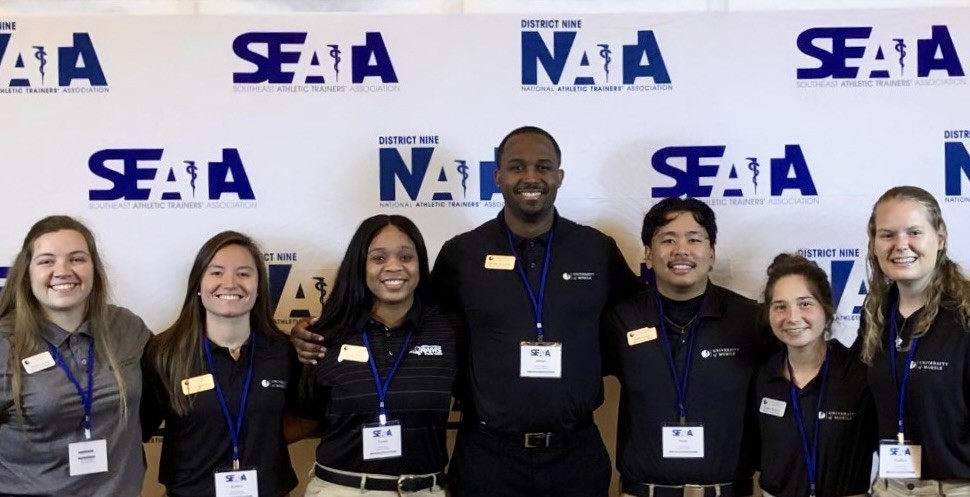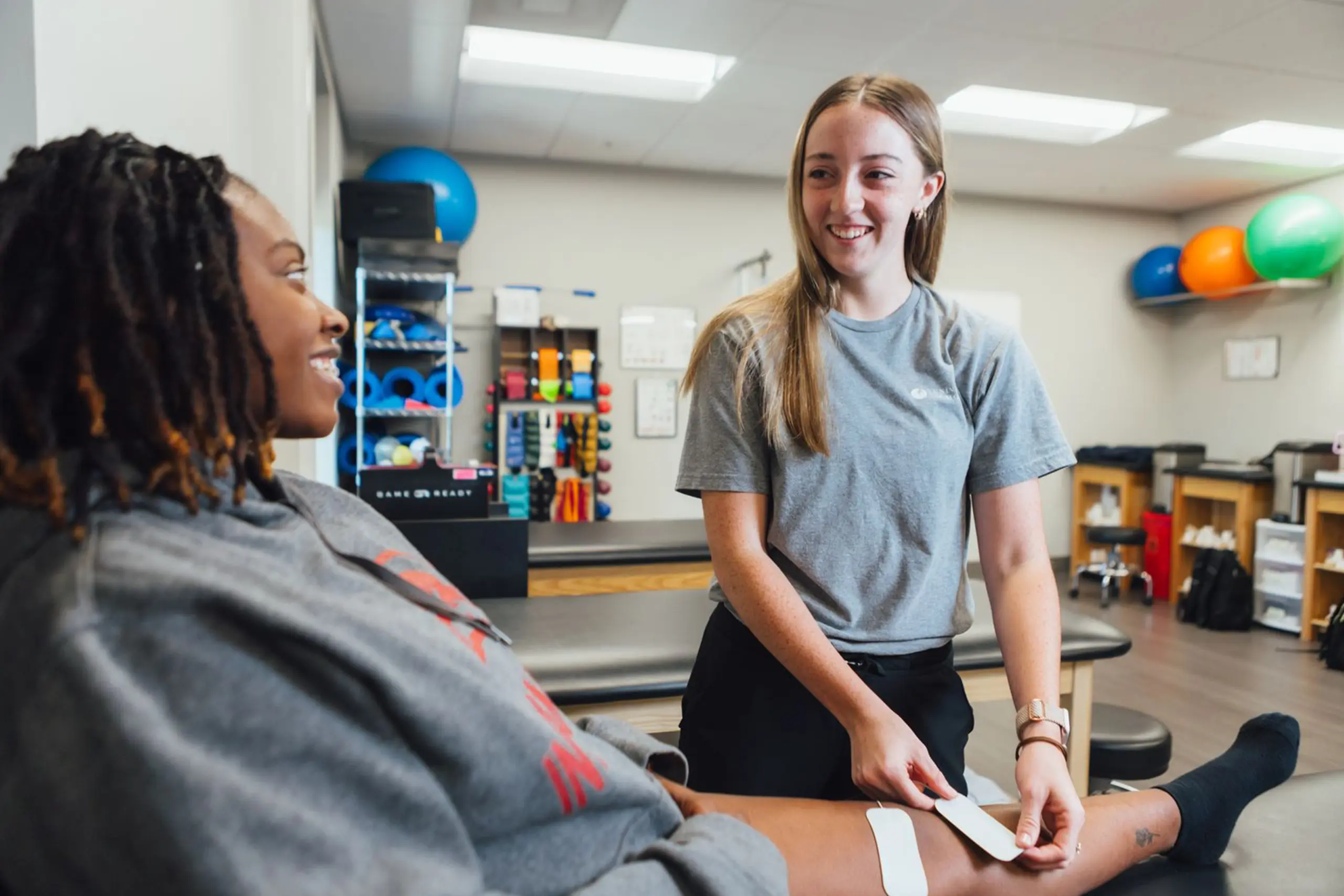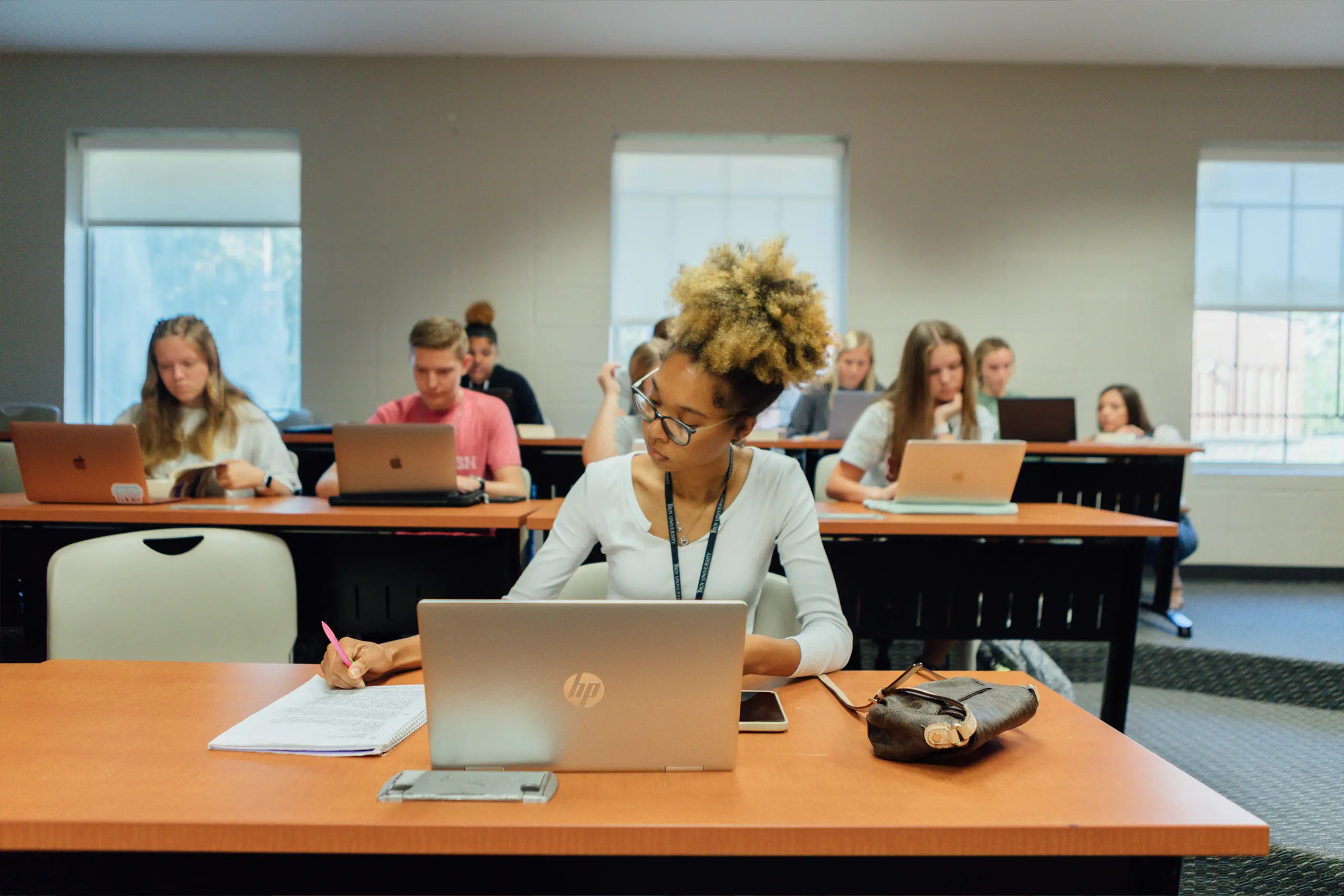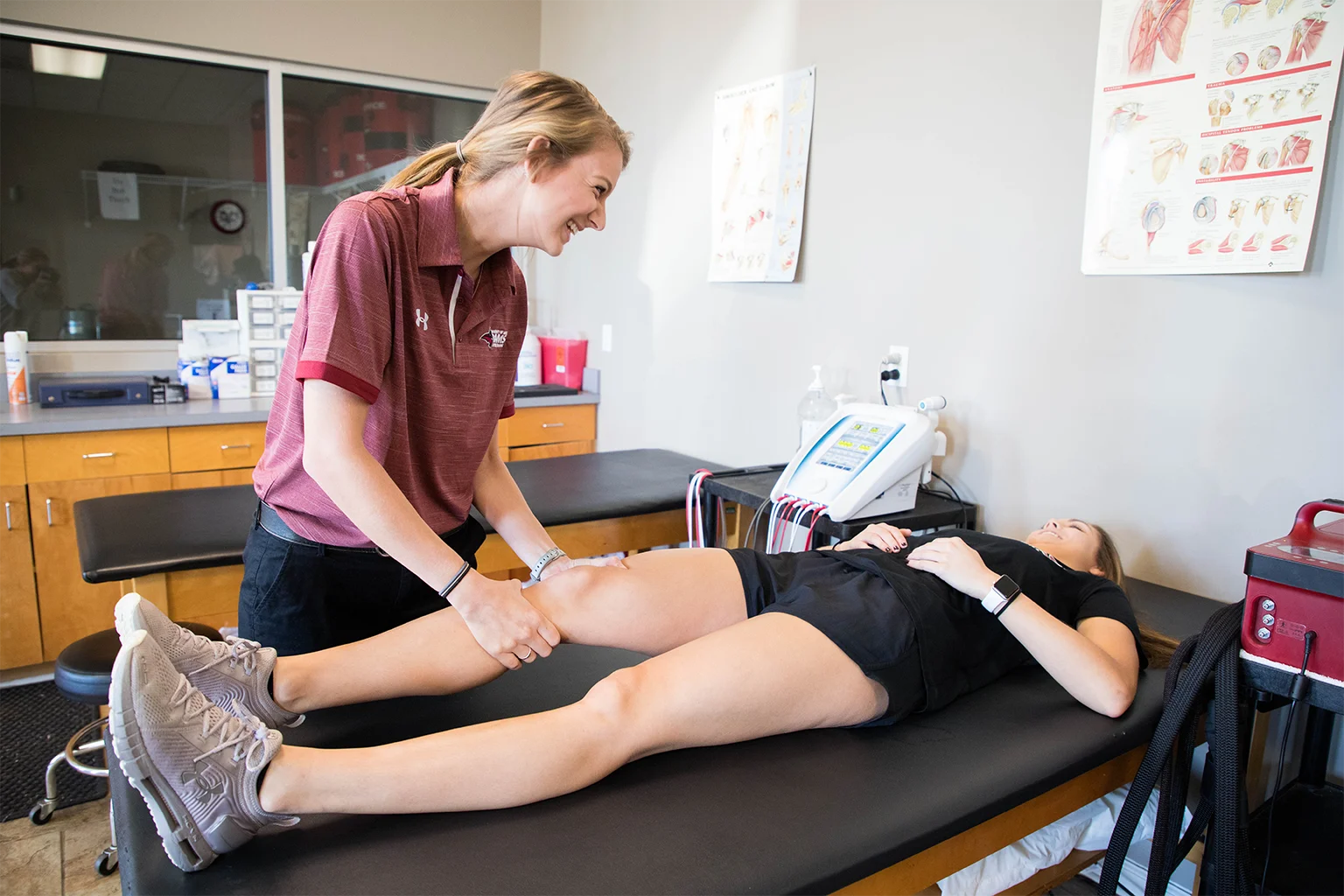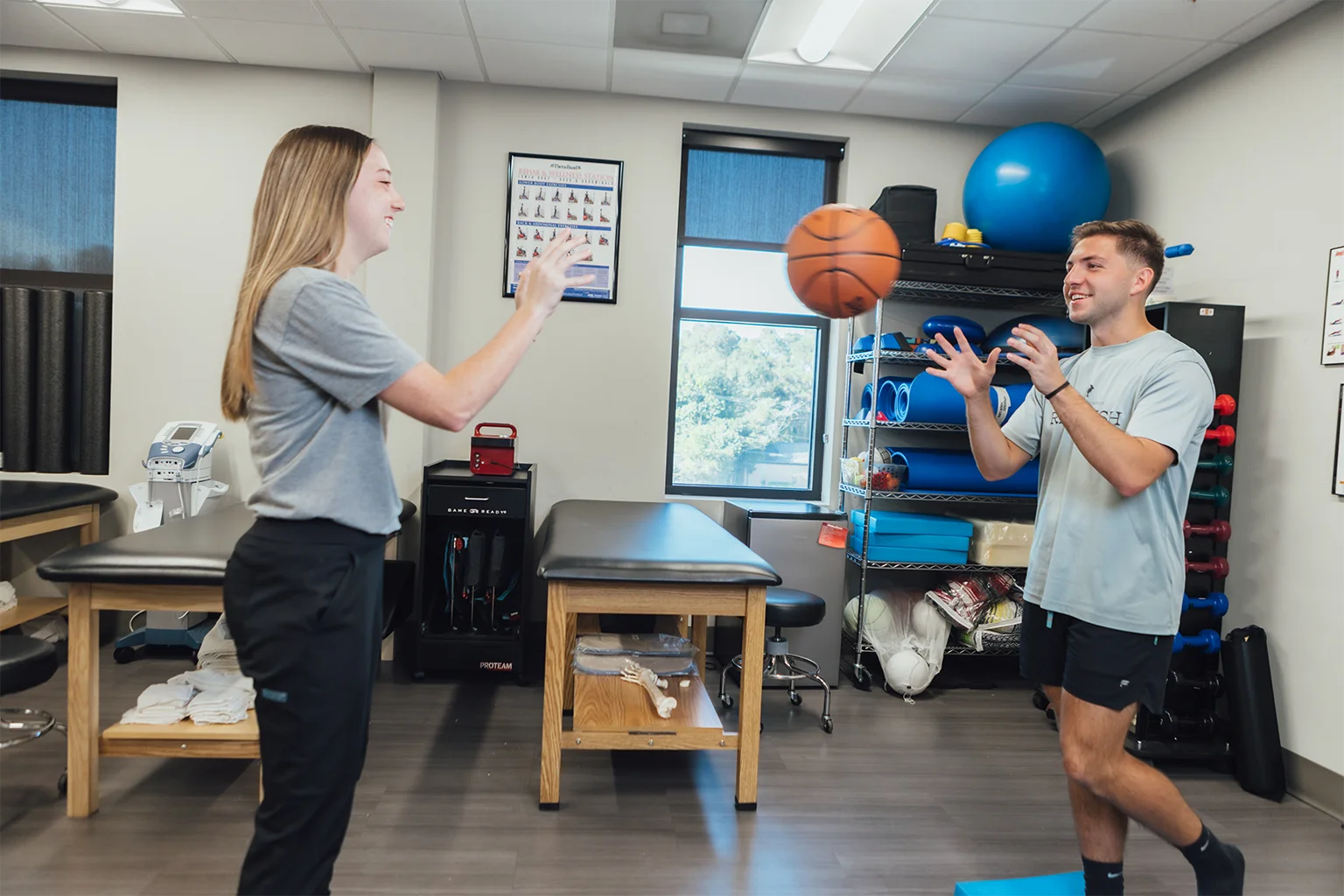Master of Athletic Training
The University of Mobile has developed a dynamic approach for a student wishing to pursue the Master of Athletic Training.
Master of Athletic Training
Undergraduate Freshmen or Transfer
The Pre-Athletic Training Concentration in the School of Health and Sports Science allows the student to complete prerequisites for graduate programs in athletic training while completing courses in Kinesiology.
Graduate Students
The Master of Athletic Training (MAT) program is a two-year, 57-credit-hour program that prepares students through both didactic and clinical experiences to sit for the Board of Certification Exam.
The Program’s Mission
The Master of Athletic Training program prepares graduates to collaboratively work with all health care professionals to provide, administer and manage the health care of patients across a lifespan; to participate in research and other activities designed to advance the quality of athletic training services; and to be advocates in building a solid foundation for future professionals, clients and the public regarding the profession of athletic training.
The demand for athletic trainers is projected to grow much faster than the average for all occupations. Some characteristics of professionals in the field of athletic training include adaptability, communication skills, high ethical standards, confidence, empathy and attention to detail.
All Programs
- Athletic Training
Athletic Training Major for All Tracks
Click through the tabs below to navigate through each program.
- Prospective Students
- Prospective Students
- MAT Core
- CAATE Outcomes
Prospective Students
The Commission on Accreditation of Athletic Training Education (CAATE) requires the university to divulge information pertaining to program policies and procedures.
MAT Core
- BIO 525 Human Gross Anatomy
- AT 501 Principles of Athletic Training
- AT 505 Management of Medical Emergencies
- AT 510 Clinical Skills Lab I
- AT 511 Clinical Skills Lab II
- AT 512 Clinical Skills Lab III
- AT 513 Clinical Skills Lab IV
- AT 515 Evidence Based Practice I
- AT 520 Evaluation of Musculoskeletal Injuries Lower Extremity
- AT 525 Therapeutic Interventions I
- AT 530 Evaluation of Musculoskeletal Injuries Upper Extremity
- AT 535 Therapeutic Interventions II
- AT 540 Psychosocial Strategies in Athletic Training
- AT 550 Introduction to Pharmacology
- AT 555 BOC Exam Preparation
- AT 560 Management Strategies in Athletic Training
- AT 565 Evaluation of Head, Neck, and Spinal Injuries
- AT 570 Evaluation and Treatment of Medical Conditions
- AT 575 Research Design in Athletic Training
- AT 585 Senior Capstone in Athletic Training
- AT 590 Clinical I
- AT 591 Clinical II
- AT 592 Clinical III
- AT 593 Clinical IV
CAATE Outcomes
The University of Mobile’s Master of Athletic Training program is accredited by the Commission on Accreditation of Athletic Training Education (CAATE). We are committed to maintaining the highest standards in athletic training education and preparing students to serve with excellence in a variety of clinical settings.
Program Benefits
- State-of-the-art Center for Excellence in Healthcare Practice located on campus with 10 high-fidelity manikins used for patient encounters
- Human Gross Anatomy class offered in the second semester
- Multiple clinical opportunities at local high schools, sports medicine clinics, surgery centers, physical therapy clinics and emergent sites
Your Dream Job Awaits!
Collegiate
Occupational
Professional
Clinic/Hospital
“The best athletic trainers possess empathy, kindness, perseverance, humor, a strong work ethic, emotional intelligence, cultural acceptance, dedication, intelligence, determination and a passion for the profession. Those are the students the University of Mobile is seeking to find for their next cohort of students.”

